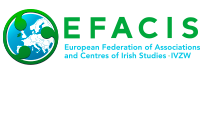NEWSPAPER & PERIODICAL HISTORY FORUM OF IRELAND
http://www.newspapersperiodicals.org/
THE PRESS AND THE VOTE
Tenth Anniversary Conference, National University of Ireland, Galway, 9-10 November 2018
‘The gallery in which the reporters sit has become the fourth estate of the realm’ wrote Thomas Babington Macaulay in 1843. The role of the press in informing or influencing, misleading or educating voters has been debated before and since Macaulay’s statement. In 2018 the question of the role and influence of the established press in referendums and elections is as relevant as ever. Marking the centenary of the 1918 general election in Britain and Ireland, 2018 presents a pertinent point to examine these questions.
Held in the immediate aftermath of the First World War, the 1918 general election was the first under the Representation of the People Act where franchise, with some limitations, was extended to women over thirty and men over twenty-one. In Britain it was a successful election for the wartime coalition government and saw a significant increase in Labour’s share of the vote, though not seats. In Ireland there was a landslide victory for Sinn Féin, who largely wiped out the Irish Parliamentary Party, and went on to form the abstentionist First Dáil. It also saw the first election of a woman to the Westminster parliament, though as a Sinn Féin candidate Countess Markievicz did not take her seat. The parties and perspectives involved in the election all had their supporters and critics in the press: the establishment as represented by the coalition, the Labour movement, the spectrum of radical and socialist organisations, Irish nationalism and the women’s suffrage movement.
The Newspaper and Periodical History Forum of Ireland (NPHFI) invites papers that interrogate the press and the vote from a range of disciplinary perspectives. The focus of papers should be on print media and / or its intersection and interaction with other forms of media insofar as they relate to the history of print.
Papers are not required to specifically address Britain or Ireland, or the 1918 general election; they may address any historical period, up to and including the present day, and any geographical region or regions. Topics that may be addressed include, but are not limited to:
- The press as an institution of electoral democracy.
- The press and electoral propaganda and disinformation.
- The press in landmark votes and referendums.
- The press and post-war elections.
- The press and the extension or restriction of franchise.
- The press and women’s suffrage.
- The Vote as an instrument of social change for the women’s suffragist and labour press.
To submit a proposal please email an abstract of no more than 250 words to the NPHFI secretary, Dr James O’Donnell, at nphficonference@gmail.com.
Abstracts must contain a clear title and present clearly the main thesis / argument proposed. Each abstract must also include name(s), affiliation, institutional address and email address(es) of the author(s).
Deadline for submission of abstracts: 7 June 2018
The Newspaper and Periodical History Forum of Ireland seeks to achieve gender balance on its conference panels and welcomes proposals from researchers of all career stages working in academia, media, and in professional organisations.
Hosted by the Moore Institute in association with the Centre for the Investigation of Transnational Encounters (CITE) and the Irish Centre for the Histories of labour and Class (ICHLC), and with thanks to the support of Gale Primary Sources.
 Efacis
Efacis 


